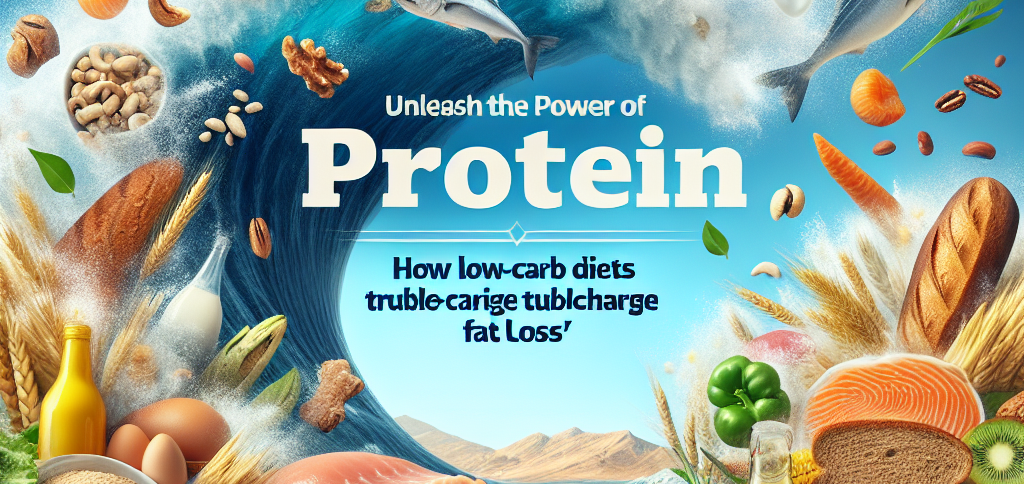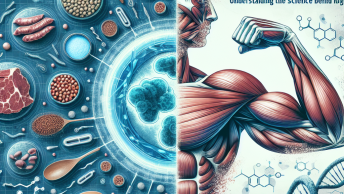In the quest for effective fat loss, many people are turning to low-carb diets as a viable option. This dietary approach has gained popularity over the years due to its potential benefits in weight management and overall health improvement. If you’re considering going low-carb to shed those extra pounds, here are ten essential tips to guide you on your journey.
1. Understand the Basics of Low-Carb Diets
A low-carb diet typically limits carbohydrate intake while emphasizing proteins and fats. By reducing carbs, your body is encouraged to burn fat for fuel instead of glucose. This metabolic state, known as ketosis, has been shown to aid in weight loss. Familiarize yourself with the different types of low-carb diets, such as ketogenic, paleo, and Atkins, to find one that aligns with your lifestyle and goals.
2. Prioritize Whole Foods
Emphasis on whole, unprocessed foods is crucial in any successful low-carb diet. Focus on incorporating plenty of vegetables, lean proteins, healthy fats, and low-sugar fruits into your meals. Examples include leafy greens, avocados, nuts, seeds, and fatty fish. These foods provide essential nutrients while keeping carbs in check, helping you feel full and satisfied without excess calories.
3. Monitor Your Carb Intake
While it can be tempting to go low-carb without tracking your intake, monitoring your consumption can help ensure you stay within your goals. Many low-carb diets suggest limiting daily carbohydrate intake to 20-50 grams, depending on individual needs and activity levels. Utilize apps or food journals to keep track of your carbs and maintain accountability.
4. Stay Hydrated
Hydration plays a vital role in any weight loss regimen. Drinking adequate amounts of water can help control hunger, improve metabolism, and support overall health. When transitioning to a low-carb diet, many people may experience a quick loss of water weight, which can lead to dehydration. Aim for at least eight 8-ounce glasses of water per day, and consider increasing your intake if you’re active.
5. Plan Your Meals Ahead of Time
Meal planning can significantly impact your success on a low-carb diet. By preparing meals in advance, you can ensure that you have healthy options readily available, reducing the temptation to indulge in high-carb foods. Create a weekly menu that focuses on low-carb ingredients, and pack snacks like cheese, nuts, or veggies for when hunger strikes.
6. Incorporate Exercise
While diet is crucial for fat loss, pairing a low-carb plan with regular exercise can amplify your results. Resistance training, aerobic exercises, or a combination can boost your metabolism, improve muscle mass, and enhance fat loss. Aim for at least 150 minutes of moderate-intensity exercise each week to support your weight loss goals.
7. Be Mindful of Hidden Carbs
Carbs can hide in unexpected places, making it essential to read labels carefully. Ingredients such as sugar, syrup, and certain grains often sneak into packaged foods. Many sauces and dressings also contain hidden sugars that can quickly add up. Always opt for low-carb alternatives or make your own versions to avoid this pitfall.
8. Enjoy Healthy Fats
One of the misconceptions surrounding low-carb diets is that fat is the enemy. In reality, healthy fats can be your best friend. They provide satiety, help stabilize blood sugar levels, and support brain health. Include sources such as olive oil, coconut oil, nuts, and fatty fish in your meals. Embrace the idea that fat can be a part of a healthy diet while keeping carbs low.
9. Seek Support from Community and Resources
Embarking on a low-carb lifestyle can be easier with support. Seek online communities, forums, or local groups where you can share experiences, recipes, and tips. Connecting with others who have similar goals can boost motivation and provide valuable insights. Additionally, exploring resources like [Click Here to learn more] can offer expert advice and tailored plans to enhance your low-carb journey.
10. Stay Patient and Persistent
Fat loss is a gradual process that requires patience and commitment. Initially, you may experience rapid weight loss due to water retention, but sustainable fat loss takes time. It’s crucial to remain motivated and not get discouraged by temporary plateaus. Celebrate small victories and keep focused on your long-term goals for better adherence to your new lifestyle.
Conclusion
Adopting a low-carb diet for fat loss can be an effective strategy when done correctly. By understanding the fundamentals, focusing on whole foods, staying hydrated, planning meals, and being mindful of your intake, you can lay a solid foundation for your weight loss journey. Combine this dietary approach with regular exercise and support from communities to keep you motivated and on track. With patience and consistency, you’ll be well on your way to achieving your fat loss goals.
For more information and tailored resources to assist you in your low-carb endeavors, [Click Here to learn more]. Start your transformative journey today!






